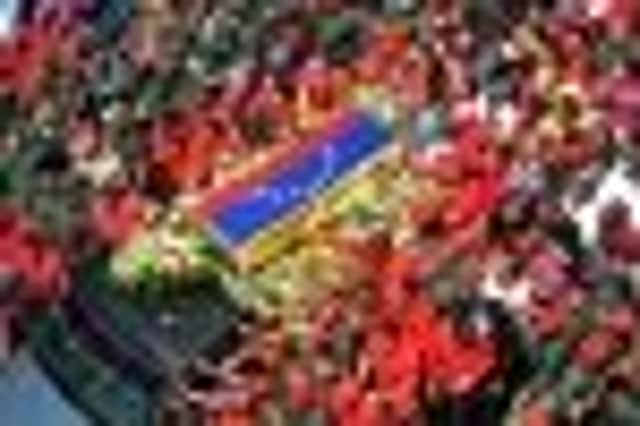Hugo Chavez: Social revolution that fizzled out


While campaigning, he arrived at a remote town in the south of the country where hundreds of people had been waiting for hours to hear him speak under the scorching sun. Upon seeing this, Mr Chávez grew livid, ordering his campaign officials to guide everyone to a nearby spot shaded by trees.
El Comandante’s concern for the poor and his ambitious social programmes – including building clinics in Caracas’s miserable barrios, constructing social housing and providing free meals to poor children in schools – represent his strongest legacy and explain his enduring popularity. Nearly half of the population was in poverty when he rose to power in 1999, putting an end to 20 years of corrupt two-party rule. A decade later, the figure stood at 27.8 per cent, according to the United Nations.
Advertisement
Hide AdAdvertisement
Hide AdHe financed these social initiatives with oil money. He not only benefited from high prices – now roughly ten times what they were when he was first elected – but also increased the royalties paid by foreign oil companies. Flushed with petrodollars, Mr Chávez also put into practice his vision of a united Latin America in the face of “US imperialism”, a move backed by former Brazilian president and close ally Luiz Inácio Lula da Silva.
Mr Chávez saw himself as the true heir of Latin American liberators Simón Bolívar and José Martí. His Petrocaribe initiative, for example, has provided oil below market rates to 17 countries in the region, including two-thirds of Cuban oil imports which, in exchange, sent thousands of skilled professionals such as doctors and nurses to Venezuela.
But his self-proclaimed Bolivarian revolution has become, in many ways, a lost opportunity. He nationalised businesses to create a socialist economy, placing them in the hands of an already notoriously inefficient bureaucracy. This has bred even more corruption and further increased the country’s huge dependency on oil, which now accounts for 90 per cent of its foreign currency inflows.
Venezuela also has one of the highest inflation rates in the region and it was forced to devalue the bolivar by a third only last February. Soaring crime rates have also turned the country into one of the most dangerous places in the world.
Mr Chávez’s active support for groups such as Hezbollah in Lebanon, as well as countries such as Iran and even Syria, have raised questions about his freedom-fighter credentials. Meanwhile, the economic failings of the Chavista revolution have made even allied Latin American leaders, such as president Ollanta Humala of Peru, follow the more open – and successful – Brazilian economic model, denting Mr Chávez’s influence in the region perhaps forever.
• Alfonso Daniels reports on Latin America for The Scotsman